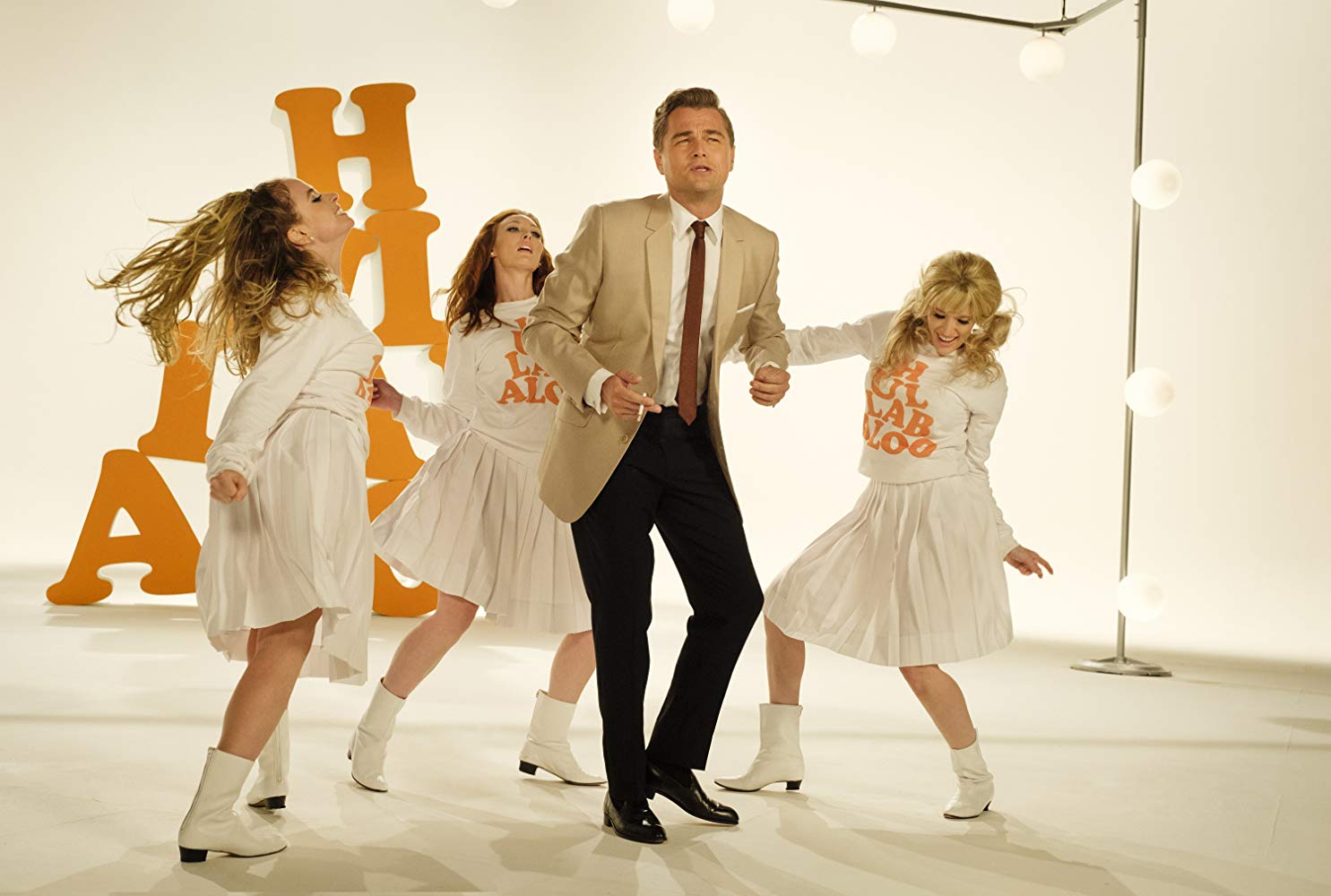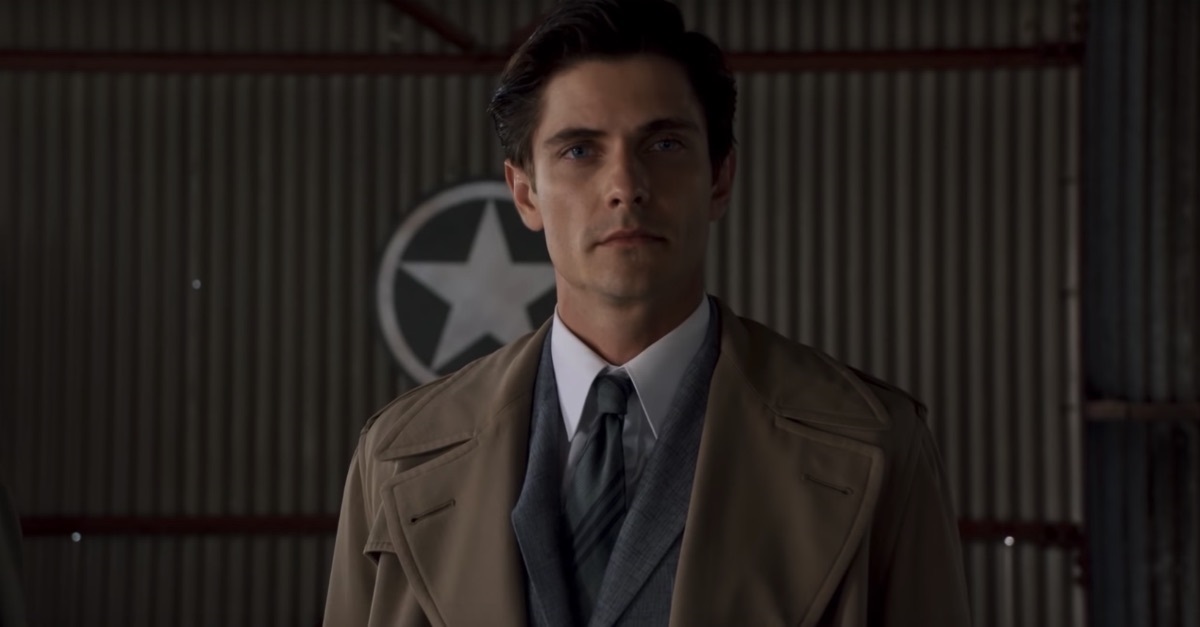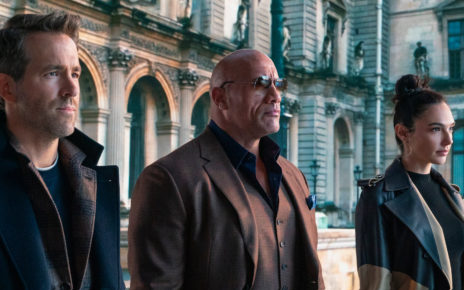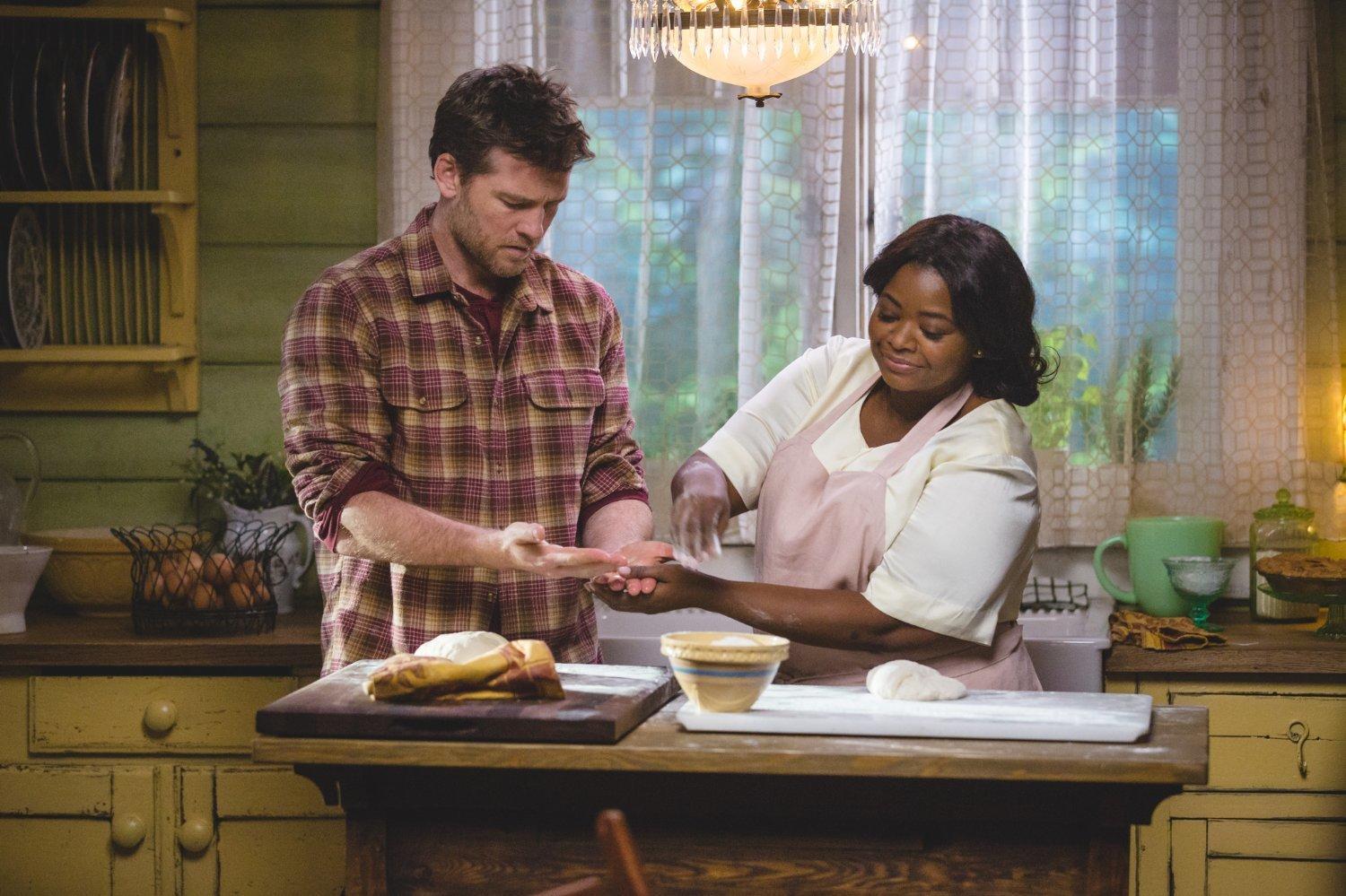Once Upon a Time … in Hollywood has more backstory than a Mexican soap opera. Quentin Tarantino decided his look at the Golden Age of Hollywood as seen through the Manson Family wasn’t going to cheat Hollywood, the Mansons, or anybody in between. Not many times in life will you get dueling Steve McQueen impressions and yet Once Upon a Time … in Hollywood gave us exactly that from fictional hero actor Rick Dalton (Leonardo DiCaprio) and non-fictional, non-hero, better-actor Steve McQueen (Damian Lewis).
Rick and his stunt double Cliff Booth (Brad Pitt) pace this movie about movies and Mansons. To get the feel for that tale, it’s important understand who Rick is – an aging B-lister on the brink of being a permanent guest star. Years previous, Rick starred as an Eastwood-type vigilante in a western TV show the country would visit every Wednesday night at 9 pm; now, he only plays bad guys. I’ve thought about his modern equivalent for context – tossed names around like Robert Urich, Tom Selleck, Josh Hartnett, James Marsden, but the performer I’m settling on is Joel McHale: certainly a recognizable star, but not one who has a 24/7 agent or an entourage. Joel is enough removed from the successful TV show he carried that now he only plays bad guys and his look is definitely on the outs, Hollywood-wise. It might also take you several tries to summon up the name “Joel McHale” if you saw him on the street. That’s Rick Dalton – you’ll note here that Leonardo DiCaprio is playing an actor who is a worse actor than he is in real life – now there’s an acting challenge.
Over the course of a lengthy weekend in February 1969, Rick and Cliff meet, among others, Sharon Tate (Margot Robbie), Bruce Lee (Mike Moh), and the Manson family. In a sense, this film is a little like an R-rated episode of “Scooby Doo.” The leads represent the irony of ironies – Rick is a successful, recognizable starring actor, but a total slave to his ego. Early on, he breaks down in tears after being reality-schmoozed by future agent Marvin Schwarz (Al Pacino). Cliff, meanwhile, lives with his dog in a trailer by a drive-in. He has no discernible life outside Rick and his future is entirely tied to a man who is no longer in great demand … and yet, Cliff is as cool as they come.
Like Inglorious Basterds, Once Upon a Time … in Hollywood is an alternate history, one imagined by Tarantino, and for that I’m thankful. The final act is by far the best part of the film and, imho, the movie’s saving grace. Don’t get me wrong, Once Upon a Time … in Hollywood gave us a few smiles along the way with a few of everything else as well. Six months removed from the climax, the first act essentially takes well over two hours.
The film has a huge dilemma in that the denouement is fantastic exactly because a set of earlier scenes was a big letdown. The Spahn Ranch is where we meet the Manson family – these scenes have the exact same feel as the “Soap Anecdote” scene in Reservoir Dogs. You may think that’s a good thing; for me, “Soap Anecdote” was an elongated setup with no punchline. Unlike Dogs, however, Once Upon a Time –thankfully- has a punchline to their extended joke, but you have to wait an hour to get there. Yet, it is exactly because the setup lacked satisfaction that makes the delayed punchline so jarring.
I’ve spent over an hour thinking about how I’m going to rate this experience. I may even rate Once twice. Some folks are going to call this the best film of the year. I won’t ridicule them. That list may include the Academy itself. Hollywood is so notoriously narcissistic that any decent film about film-making is bound to get attention come awards time. I won’t go there; I felt the near three-hour run-time acutely. Not that the film failed to entertain me, but I really did wonder where it ends – I heard superfluous information about twenty different characters … heck at this rate, why doesn’t the dog get a backstory? Or the movie ticket vendor? Or Steve McQueen? Why stop at twenty? I mean, to tell this tale properly, don’t you have to spy on the motivation for every.single.character no matter how minor? No? Then maybe a little more editing was in order.
I mean, geez, for a film loosely based on the Sharon Tate murders, Sharon Tate was completely inessential to the film. Speaking of non-essentials, if I knew nothing of the Mansons, I’d emerge from this film wondering why does Quentin Tarantino hate hippies … and women … and Bruce Lee?
I’ll say this much, for a looooooong film -unlike most time wasters- my takeaways are all the best stuff: Cliff’s fight with Bruce Lee, Rick’s reaction to his eight-year-old co-star’s assessment, the awesome climax. Yes, I could have easily rated this film higher and gotten away with it, too, if it hadn’t been for those meddling kids.
♪They’re culty and a-social
Outspoken and vocal
Murders far and local
The Manson Family
I think they kidnapped Bruce Dern
Their ideas cause for concern
They’d fit right in with modern
White supremacy♫
Rated R, 161 Minutes
Director: Quentin Tarantino
Writer: Quentin Tarantino
Genre: Revisiting history
Type of being most likely to enjoy this film: Anybody who can cite three facts about Squeaky Fromme (Dakota Fanning) without consulting the internet.
Type of being least likely to enjoy this film: The impatient
♪ Parody Inspired by “The Addams Family”




